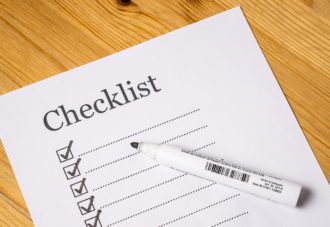The material is published on the Povaha platform
In recent years, it has become increasingly popular to label restaurants, cafes, creative spaces, coworking spaces, or even government agencies with stickers, signs, or, in the case of places abroad, a Google Maps tag “…-friendly place”. Thus, now we can see disability-friendly, LGBTQI+ friendly places, industries and businesses started by a woman or a group of women, kid-friendly places, etc. One institution might have more than one such sign at once.
As expected, the question arises, why do we need such labeling? Government and non-government agencies should be equally open, comfortable, safe and accessible to all, shouldn’t they? Should such self-determination of institutions be considered part of a marketing strategy, or a desire to maintain interest and popularity, following the hype? Or a sticker with a rainbow flag – a little more than trends and institutions really embody the values they talk about. However, why are the places friendly to certain target audiences accused of dividing society or creating artificial privileges for one group or another?
In this article, we answer all the questions at least in part.
How do we interpret the term “…-friendly”?
If we take a closer look at the origins of the phrase “…-friendly”, we will learn that this term refers to activities and facilities (e.g., cafes, bars, hotels, educational and healthcare facilities, airlines, institutions) open, comfortable, accessible and above all safe for a specific or multiple target audiences. Typically, such institutions provide employment benefits to the representatives of these groups, sometimes raising their salaries or providing them with other benefits. At least abroad, this approach is widely practiced by conscious employers.
To understand all the advantages and potential disadvantages or dangers of such places and activities, we need to know the principles and values of their foundations, as well as social and political environment in which “…-friendly” places exist.
“Disability-friendly”: why this is not a privilege, but a step to equality
For people with any disability, barriers, lack of physical or architectural accessibility turn into tragedy, if not injury, or higher stress levels. Imagine a person in a wheelchair who is in an institution with unsatisfactory condition of ramps, without any elevators and equipped toilets, or a blind person in a room without information in Braille, audio and other instruments. How should they navigate in such a space? Let alone, the ambiguous looks or discriminatory statements by others that people with disabilities around the world constantly encounter.
Therefore, disability-friendly places currently have nothing to do with privileges. They just give more opportunities to people and their relatives to be fully included in public life.
Building egalitarian and barrier-free society
Back in 2016, the United Nations released a study stating that: by 2050, about 6.25 billion people will live in cities, and 15% of them will have disabilities. Therefore, the elimination of barriers and restrictions should be a cross-cutting issue. Fortunately, Ukraine is slowly but steadily moving down this path.
This year, the Cabinet of Ministers of Ukraine approved the National Strategy for a Barrier-Free Space in Ukraine until 2030 and its action plan. The strategy emphasizes that accessibility is a need not only for people with disabilities, but also for other less mobile and vulnerable groups. For example, the elderly, people with temporary health problems, pregnant women, children, people with prams. The Action Plan for this Strategy contains 7 specific steps, in particular: improving the level of physical accessibility of public buildings, access to the Internet in Ukrainian villages, etc.
In addition, back in 2017, the Verkhovna Rada adopted an updated Law of Ukraine “On Education”, a large part of which focuses the official principles and approaches to inclusive education in Ukraine. For example, now children with different educational needs have the full right to study in all educational institutions (including state and municipal ones, free of charge), regardless of the “establishment of disability”.
So we can sum up: Ukraine-wide trends in the implementation of inclusive approaches have become comprehensive.
Another good sign for the society on the way to equality and inclusion is that there are more and more inclusive businesses and industries. For example, the all-Ukrainian portal “Diia.Business” has launched the project “Business without Barriers”, which provides information support to companies willing to cooperate with people with various disabilities. By attracting them, the business is strengthened by powerful, talented, open-minded specialists, and this is hard to overestimate. And the employees themselves feel needed, feel that they are not alone, continue to develop and fulfill their potential, and increase their income.
By strengthening their skills, they strengthen the community, fully integrate into communities, and thus build an equal and barrier-free society.
#LGBTQI+ friendly
To continue with the economic growth and inclusion, let’s mention another category – LGBTQI+ friendly places. Open For Business, an association of global companies, published the results of a study on the impact of LGBTQI+ on European economies. Experts say that creating LGBTQI+ friendly jobs will not only increase profits. Such enterprises and businesses will attract more local and international investment and convince skilled employees not to migrate to countries where society is more open and tolerant.
For example, Google has been declaring for years the values of an open, barrier-free society free of stereotypes and restrictions. Accordingly, the developers confirm their commitment to creating quality products and services.
For example, one of many activities on the Google platform has been the development of tools and resources for LGBTQI+ businesses that will support relevant venues and events throughout the year. With these tools, owners will be able to add attributes to the company’s profile to show that the business is “LGBTQI+ friendly”. Or add an “LGBTQI+ friendly” tag to their business profile on maps and Google searches, or a tag that “the place is safe for transgender people”, etc.
Joined the map of friendly places? get ready for threats and negativity
But if we think the Ukrainian environment, we are still very far from the coveted equality and non-discrimination in this area.
Back in 2016, on the eve of the Eurovision Song Contest in Ukraine, NGO Kyiv Pride created a map of LGBTQI+ friendly places in Kyiv, and in 2021 the first mobile application for LGBTQI+ was released. It contains: an interactive map of LGBTQI+ friendly communities and businesses, contacts to help LGBTQI+ people, current news and other important information.
By the way, the app is freely available on Android and iOS platforms. Perhaps this is the reason for the threats and negative feedback that the places and events that have expressed their desire to join the Map of Friendly Places got spammed with. Representatives of right-wing radical communities are publicly calling for cyberattacks to damage the ranking of LGBTQI+ friendly Ukrainian brands and places.
But clearly, cyberbullying is only the start. The human rights community was recently shocked by an attack by far-right activists on Kyiv’s Khvylovyi bar, and such attacks and assaults are occurring in various Ukrainian cities.
Today, Ukrainian society is only developing a tradition of inclusion and acceptance, so it may not be ready to fully embrace LGBTQI+ friendly places or events. At least for now, such places cannot be called completely safe. Still, we should thank the LGBTQI+ friendly companies for their commitment and openness. After all, every day they take bold practical steps towards an equal, prosperous, economically sustainable society without any labels.
The feminine side of Ukrainian business
Speaking about the developed society without clichés and stereotypes, we must mention businesses started and developed by women. According to a study by the World Economic Forum in 2021, Ukraine ranked 74th out of 156 countries in the global ranking of gender equality in business. And even in the last 10 years, the change in the proportion of men and women in business is visible.
Women’s entrepreneurship is really gaining momentum in Ukraine. In recent years a lot of programs programs to support women’s business have appeared: both locally and from international partners. Ukrainian NGOs help allocate grant funds to those who start their own businesses, create platforms and spaces for entrepreneurs to learn, share experiences and collaborate.
The results of a narrower study of the state of women’s entrepreneurship in Ukraine during the pandemic speak to the countless stereotypes and prejudices Ukrainian women encounter in business on a daily basis. “Business is not for women”, “women are the weaker sex”, “a woman cannot be a leader” – these and similar judgments accompany businesswomen. Perhaps the problem is that a stigmatized society is still not ready to accept a woman who is able to provide for herself and feels independent.
The already mentioned Google is a good example when it comes to global tools and practices to balance gender in business. They consider equality between men and women to be one of the key values, so they say: Whether women are taking the first step into their own businesses or pursuing an entrepreneurial career, the company has free tools to help everyone. In particular, there are plenty of educational opportunities, the option to add tags to show your business as female, materials for marketing strategies and personal business plans (to grow your own business) and much more.
It’s also good to see that Ukraine is steadily keeping up with global trends. In addition to opportunities from the public sector and business itself, the state is trying to support and develop women’s entrepreneurship. The above-mentioned Diia.Business portal also has a section dedicated to women’s entrepreneurship, bringing together ideas for starting a business, educational programs for women entrepreneurs, services and tools to support business in the Ukrainian environment and much more.
Conclusions
Although people often think that any “…-friendly place” causes so-called positive discrimination (which gives more rights and privileges to vulnerable social groups), we must object here. After all, the global goal of such places is to provide, for example, people with disabilities, with the same opportunities, the same sense of care and security that other visitors to cafes or creative spaces have.
Fortunately, we now have reason (albeit ambiguous) to believe that the owners of establishments and companies declare them friendly not for advertising or PR purposes, but to affirm the values of a barrier-free, open, modern, economically developed, safe society without discrimination or prejudice.
And the active participation of business in this process is undoubtedly a tradition that should be supported and continued. But first of all, the whole Ukrainian society and state should become friendly. To do this, each and every one of us must improve on a daily basis, overcome our own stereotypes, accept diversity, and respect each other.
This material was prepared as part of the Project Ukraine Civil Society Sectoral Support Activity implemented by the Initiative Center to Support Social Action “Ednannia” in partnership with the Ukrainian Center for Independent Political Research (UCIPR) and Centre for Democracy and Rule of Law (CEDEM) with the sincere support of the American people through United States Agency for International Development.



